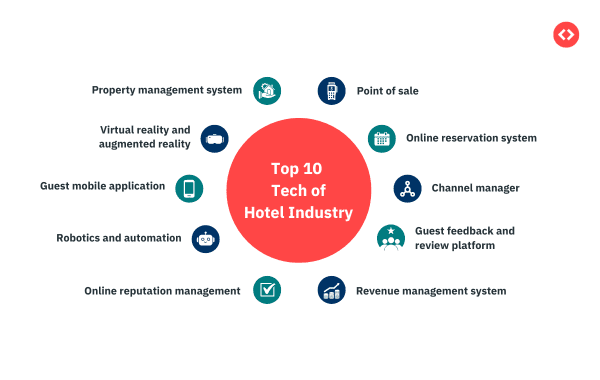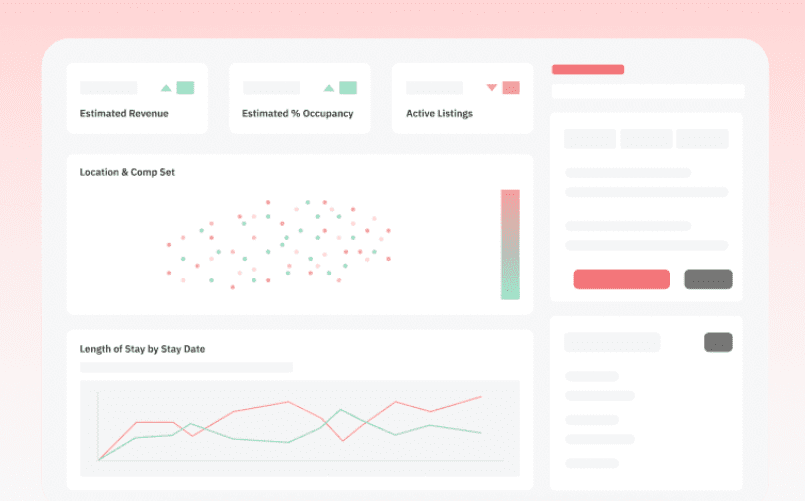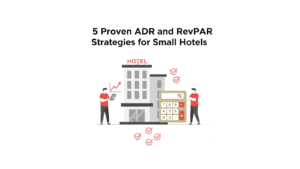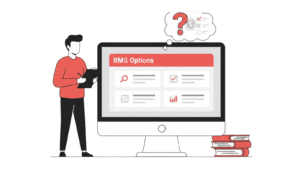Table of Contents
Updated : Aug 25, 2025
In an era where digital transformation is reshaping industries, staying competitive in the hospitality sector increasingly relies on embracing the latest hotel technology. According to a report by Statista, global hotel technology spending is projected to reach $8.8 billion by 2025, highlighting the growing investment in digital solutions. This surge underscores the significance of hotel technology trends 2025 as hoteliers strive to enhance guest experience and operational efficiency. Findings from Hospitality Technology’s 2023 Lodging Technology Study reveal that 54% of hotels are prioritizing mobile solutions and 47% are investing in enhanced cybersecurity measures, emphasizing the importance of keeping pace with hotel tech trends 2025.
What Do We Mean by Hotel Technology?
Hotel technology refers to the innovative tools and systems that enhance the guest experience and streamline hotel operations. In today’s fast-paced world, staying competitive in the hospitality industry requires adopting the latest hotel technology. This includes everything from advanced booking systems to smart room controls, which not only improve efficiency but also cater to modern travelers’ expectations.
For example, consider the implementation of mobile check-in and check-out systems. These allow guests to bypass the front desk, offering a seamless and efficient experience. Another example is the use of AI-driven chatbots for customer service, providing instant responses to guest inquiries around the clock.
Looking ahead to hotel technology trends 2025, we anticipate further advancements in personalized guest experiences through data analytics. Hotels will leverage big data to tailor services to individual preferences, enhancing guest satisfaction. Additionally, contactless payment systems and virtual reality tours are set to become standard offerings.
Hotel Technology Trends in 2025

In the rapidly evolving hospitality industry, staying competitive requires being at the forefront of the latest hotel technology trends. By 2025, several key advancements will redefine guest experiences and operational efficiencies. Here’s what you should pay attention to:
1. AI and Automation
AI and automation are revolutionizing hotel operations by streamlining processes and enhancing guest interactions. From chatbots handling reservations to AI-driven analytics predicting customer preferences, automation is becoming indispensable.
For example, platforms like Zingle use AI to personalize guest communications, improving satisfaction and loyalty.
2. Mobile/Contactless Technology
The demand for mobile and contactless technology continues to rise, providing guests with seamless check-ins, room access, and payments through their smartphones. This trend not only enhances convenience but also aligns with health and safety protocols that were put in place during COVID.
For Example, OpenKey offers a mobile key solution that allows guests to bypass the front desk entirely.
3. Smart/IoT Rooms
Smart rooms equipped with IoT devices offer personalized experiences through voice-activated controls and automated settings for lighting, temperature, and entertainment. This technology elevates comfort and efficiency in managing energy usage.
For Example, Roomie is a tool that enables hoteliers to integrate smart room features effortlessly.
4. Core Platforms (PMS/RMS)
Property Management Systems (PMS) and Revenue Management Systems (RMS) are critical for optimizing hotel operations and maximizing revenue.
Especially when it comes to revenue management, there are specific pain points that hoteliers face:
- Uncertainty about pricing decisions – Sets rates based on intuition, risking underpricing or lost revenue opportunities.
- Missing peak demand opportunities – Lacks the ability to adapt pricing for high-demand events and seasons quickly.
- Balancing guest loyalty & revenue – Long-time guests expect consistent pricing, making it hard to raise rates.
- No clear competitive benchmarking – Struggles to track nearby hotel rates and adjust accordingly.
- Lack of forecasting insights – Needs better tools to predict demand and plan room rates proactively.
How Pricelabs Pitches In

PriceLabs helps independent hotels optimize pricing with data-driven automation. With easy setup, seamless PMS integration, and full pricing control, you get more revenue with less effort.
Here’s how:
- See what competitors are charging so you can price smarter.
- Automate rate updates based on demand, seasonality, and occupancy.
- Easily adjust prices in bulk across all units in seconds.
5. Enhanced Security Measures
As digital transactions increase, robust security measures become paramount in protecting guest information and maintaining trust. Enhanced cybersecurity protocols and biometric authentication are essential components of modern hotel security systems.
For Example, Beekeeper offers secure communication tools that safeguard sensitive data.
6. Virtual Reality (VR) and Augmented Reality (AR)
VR and AR technologies offer immersive experiences that enhance marketing efforts and guest engagement. From virtual tours of hotel facilities to augmented reality guides for local attractions, these technologies captivate potential guests from the comfort of their homes.
For Example, platforms like Oculus Quest are being used by hotels to create virtual walkthroughs.
7. Advanced Payments/Biometrics
Biometric payment systems are gaining popularity due to their speed and security, offering a frictionless transaction experience for guests. This trend not only expedites the payment process but also reduces fraud risks significantly.
For Example, Clear is a tool that integrates biometric technology into payment gateways.
8. Sustainability Initiatives
Sustainability is no longer optional; it has become a core component of hotel operations as eco-conscious travelers demand greener practices. Implementing energy-efficient systems and reducing waste through technology can appeal to this growing market segment.
For Example, Green Key Global helps hotels assess and improve their sustainability efforts.
Transform your hospitality approach today
Discover actionable strategies tailored for small hotel owners and managers creating unforgettable stays for your guests & expanding revenues for your hotel!
Start your 30-day FREE trial now!Hotel Technology 2025 & PriceLabs
The hotel industry is evolving rapidly, and staying competitive requires adapting to new trends, particularly in revenue streams.
1️. Dynamic Pricing is No Longer Optional – Static rates = lost revenue. Hotels using AI-powered pricing strategies see higher ADRs and better occupancy.
2. Direct Bookings Are on the Rise – OTA commissions are eating into profits. Hotels focusing on website bookings + smart pricing see better margins.
3. AI-Powered Revenue Management is the Future – Revenue managers who embrace automation + real-time data will outpace competitors.
4. Hyper-Local Demand Trends Matter More Than Ever – Post-pandemic travel is shifting. Real-time competitor tracking + market demand insights are key.
5. Hotels Must Balance Tech + Personalization – Smart tech should enhance guest experiences, not replace them.
Start using AI-driven pricing with PriceLabs
- Hotels using dynamic pricing see up to 18% higher RevPAR in their first year.
- Smart automation adjusts prices daily based on demand and competition.
- Stay ahead of the market with real-time competitor insights.
Way Forward
As we look toward 2025, hoteliers must prioritize integrating cutting-edge solutions that enhance guest experiences, streamline operations, and ensure sustainability. By investing in advanced systems like IoT-enabled devices, AI-driven customer service tools, and innovative booking platforms, hotels can meet evolving guest expectations and maintain a strong competitive edge. The way forward involves continuous adaptation to hotel tech trends 2025, ensuring your establishment remains at the forefront of the industry’s technological evolution. Embracing these advancements not only improves efficiency but also positions your hotel as a leader in offering exceptional service and modern amenities.
Frequently Asked Questions
How AI improves hotel operations?
AI technology is revolutionizing hotel operations by automating routine tasks and enhancing guest experiences. With AI, hotels can streamline check-ins, optimize room assignments, and offer personalized recommendations, ensuring guests have a seamless stay. By analyzing vast amounts of data, AI also helps in predicting guest preferences and improving service quality.
What are the benefits of mobile check-in for hotels?
Mobile check-in is transforming the hospitality industry by providing guests with a quick and efficient way to access their rooms. This technology reduces wait times at the front desk, allowing guests to enjoy a more personalized experience. Additionally, mobile check-in minimizes physical contact, addressing health and safety concerns while enhancing overall guest satisfaction.
Talk about some hotel chatbot examples and rOI
Hotel chatbots are increasingly popular for providing instant customer service around the clock. Examples include chatbots that handle booking inquiries, answer frequently asked questions, and offer concierge services. The ROI of implementing chatbots is significant: they reduce staffing costs, increase booking conversions, and improve guest engagement by providing immediate responses to queries.








